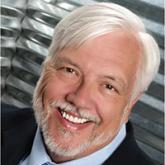Thank you for stating that ARNPs “do not need physician endorsement for the advanced component” of their practice. ARNPs need to be responsible for themselves. In California, NPs are given a certificate, not a license, and operate under the rules of the state board of nursing and the board of business and professional codes. We must act in a prudent and competent manner. I think this has been demonstrated where full practice authority is in force.
The American Medical Association (AMA) and American Academy of Family Physicians (AAFP), which still want “supervision, collaboration, or participating” designations for PAs and NPs, have tripped on their own stethoscopes on this issue. In trying to suppress advanced practice providers, they have helped create a provider shortage. Many NPs will not work in a state that has practice limitations.
In Humboldt County, California, family practice doctors are so overworked due to provider shortages that they are leaving the area. Enter locum tenens to fill the gap. But at a point, there is no benefit to being in such demand. The cost of health care has risen, and patients are unhappy with the care they receive. New patients cannot see doctors in a timely manner; when they are finally seen, they have a few minutes to share their concerns with the provider, who rarely sits down or looks away from the computer screen to make eye contact with them.
We are already seeing the push for advanced education for our NPs and PAs. We have witnessed the changeover to NP programs that culminate in a doctorate (not a master’s) degree. By 2021, PA programs will be required to be master’s level; although the process has started, there are still a few holdouts. But I consider Washington State to be a front-runner in this area.
This, for me, is the area we need to address: degree designation and equivalency. Rather than give “diplomat” or similar status to someone whose base degree is an associate’s, a better idea—and one more palatable to AMA and AAFP—might be to bring everyone to at least a master’s level. For example, the Academy of Integrative Pain Management (AIPM) gives “Fellow” designation to those with master’s preparation who successfully pass AIPM’s examination, and “Diplomat” status to doctorate-prepared practitioners who have also passed the exam.
At the end of the day, many patients prefer to see a PA or NP rather than a medical doctor. Yes, patients care about credentials—but they care more about their provider being respectful, listening, remembering their history, connecting the history from their previous provider, and offering the proper treatment for the correct diagnosis.
Jan Morgan, MS, ARNP
Fellow, Academy of Integrative Pain Management
Eureka, California
